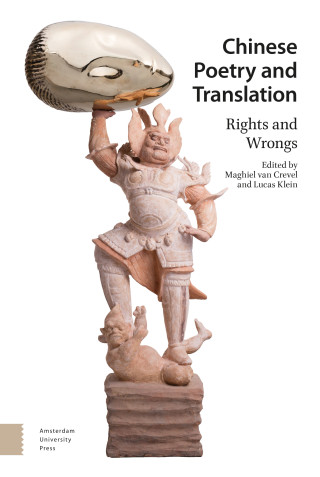Introduction – Justyna Jaguscik, Joanna Krenz, and Andrea Riemenschnitter – Treading a Tightrope: Chinese Poetry in the Modern World
I Multiple Realities
Chapter 1. Nick Admussen – The Death of Transnational Time: Locality, Reader Response, and the Strange Loop
Chapter 2. Liansu Meng – Redefining Family Women: The Ecofeminist Poetics of Shu Ting and Wang Xiaoni
Chapter 3. Andrea Lingenfelter – “Green mountains, green history, who will bear witness?”
A Woman’s Montage: Zhai Yongming’s Following Huang Gongwang through the Fuchun Mountains
Chapter 4. Andrea Riemenschnitter – Deep Lyricism: Yu Jian’s “On the Ancient Road of Hubei’s Xishui County: A Detour”
Chapter 5. Joanna Krenz – From a Poetry Popsicle to a Polymathic Herstorian: Xiao Bing’s “Possible Worlds” Through the Lens of Critical Code Studies
II Formal Crossovers
Chapter 6. Susanne Weigelin-Schwiedrzik – Lu Xun and Kuriyagawa Hakuson: Reading “Dead Fire” and “After Death”
Chapter 7. Victor Vuilleumier – Ma Junwu’s Reinvented Lyricism: Revolutionary Landscape, Romanticism, Science Fiction, and Darwinian Geology
Chapter 8. Zhiyi Yang - To “World Poetry” and Back: Xutang’s Classicist Lyricism and the Ethnic Digital Bookshelf
Chapter 9. Michelle Yeh – Nativism Revisited: Paradoxes in Modern Poetry in Taiwan
Chapter 10. Dean Anthony Brink – Processing Strangers as Vital Jouissance in Hsia Yü’s First Person
III Liquid Boundaries
Chapter 11. Simona Gallo – “I Sing of Flesh”: The Rhythm of Mu Dan’s Self-translation
Chapter 12. Mary Shuk Han Wong – Dark Tourism: Leung Ping-kwan’s Eastern European Journeys in 1990 and 1991
Chapter 13. Chris Song – Hong Kong’s Leftist Poetry: Sinophone and/or Huawen?
Chapter 14. Maghiel van Crevel – Poetry and Subalternity: What Are We Looking for?
Chapter 15. Justyna Jaguscik – Wu Xia’s Poetics of Affect
Bibliography
Index

